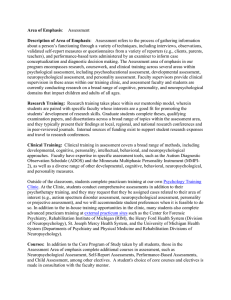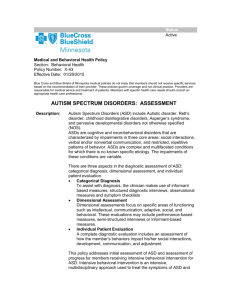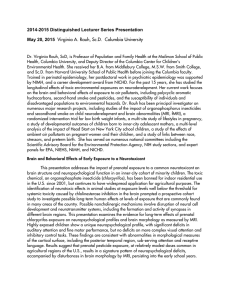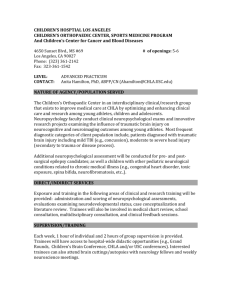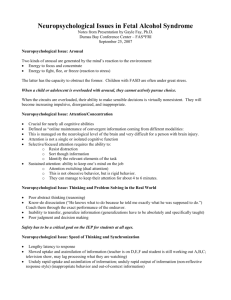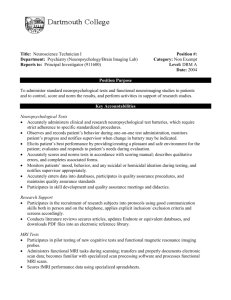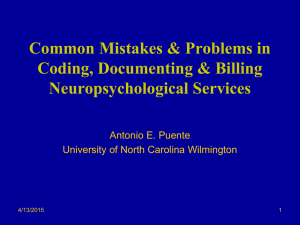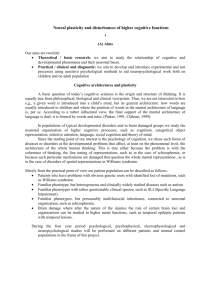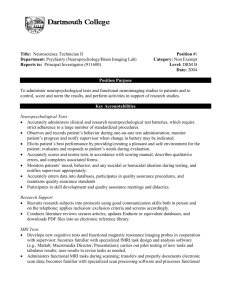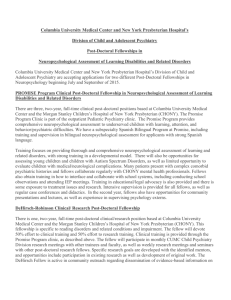Neuropsychological Outcomes - Rare Diseases Clinical Research
advertisement
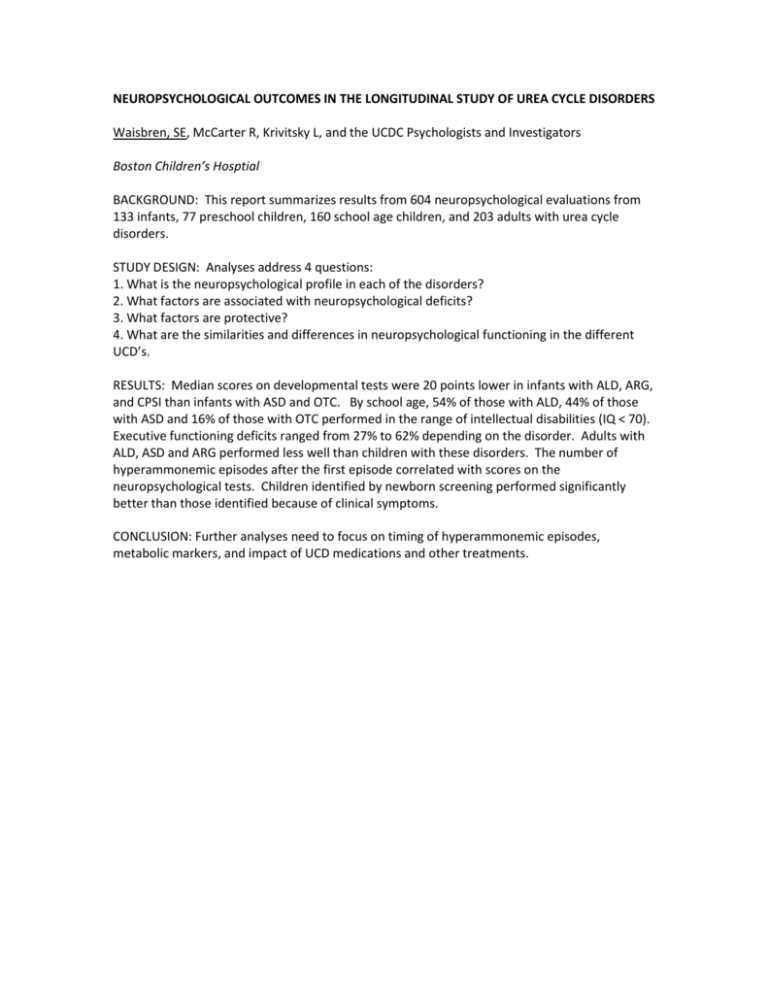
NEUROPSYCHOLOGICAL OUTCOMES IN THE LONGITUDINAL STUDY OF UREA CYCLE DISORDERS Waisbren, SE, McCarter R, Krivitsky L, and the UCDC Psychologists and Investigators Boston Children’s Hosptial BACKGROUND: This report summarizes results from 604 neuropsychological evaluations from 133 infants, 77 preschool children, 160 school age children, and 203 adults with urea cycle disorders. STUDY DESIGN: Analyses address 4 questions: 1. What is the neuropsychological profile in each of the disorders? 2. What factors are associated with neuropsychological deficits? 3. What factors are protective? 4. What are the similarities and differences in neuropsychological functioning in the different UCD’s. RESULTS: Median scores on developmental tests were 20 points lower in infants with ALD, ARG, and CPSI than infants with ASD and OTC. By school age, 54% of those with ALD, 44% of those with ASD and 16% of those with OTC performed in the range of intellectual disabilities (IQ < 70). Executive functioning deficits ranged from 27% to 62% depending on the disorder. Adults with ALD, ASD and ARG performed less well than children with these disorders. The number of hyperammonemic episodes after the first episode correlated with scores on the neuropsychological tests. Children identified by newborn screening performed significantly better than those identified because of clinical symptoms. CONCLUSION: Further analyses need to focus on timing of hyperammonemic episodes, metabolic markers, and impact of UCD medications and other treatments.
